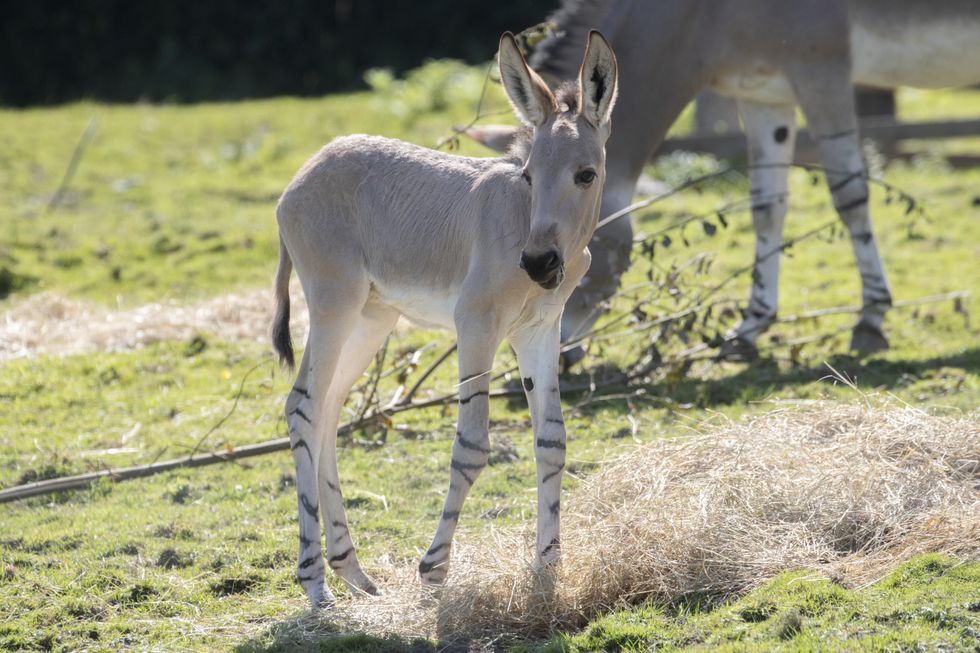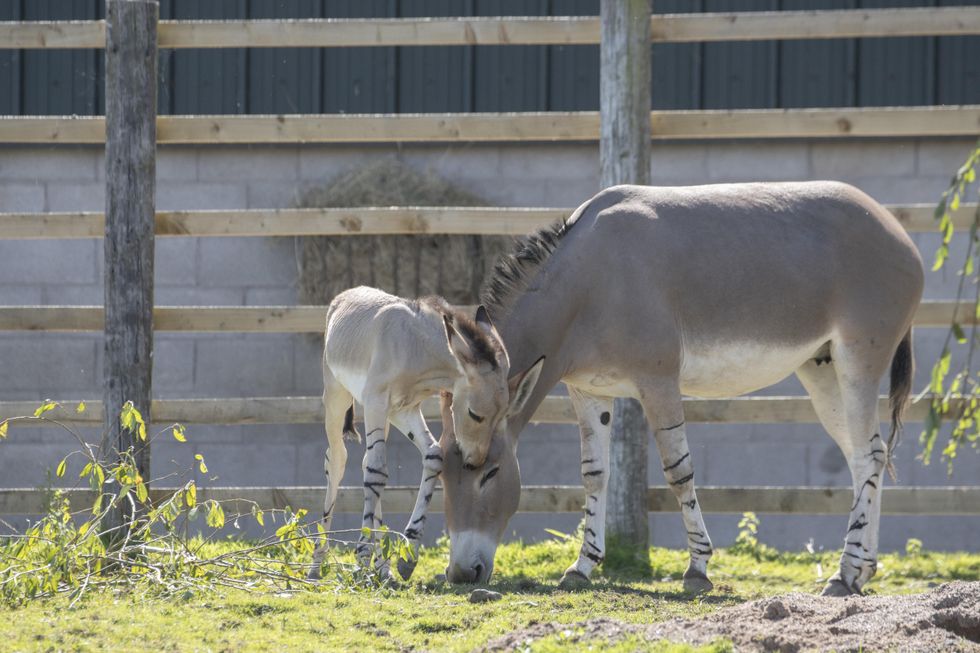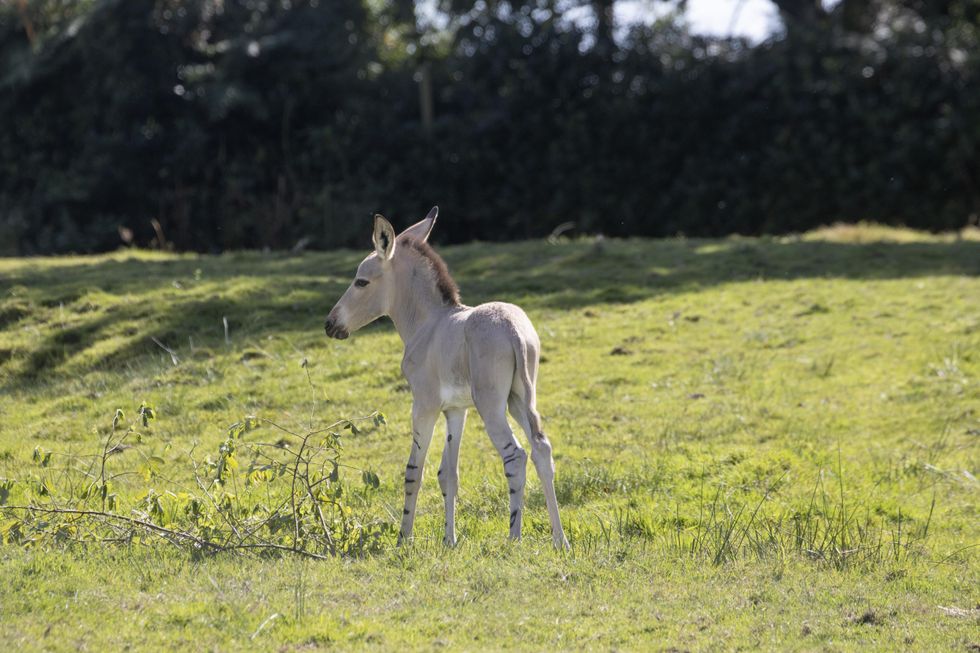
An extremely rare foal, of which there are just a few hundred left in the wild, has been born in a UK safari park.
The male Somali wild ass was born on August 10 at Knowsley Safari in Merseyside to first-time parents Lahra, four, and Hansi, five.
The foal provides a significant boost to the population of the breed, as it is estimated only 200 mature Somali wild asses remain, and they have been referred as a critically endangered species by the International Union for Conservation of Nature (IUCN).

“The foal’s birth is a great moment for Knowsley Safari and the wider Somali wild ass species,” said Lindsay Banks, ungulates team manager at the safari park.
“There are so few in the world because they’re threatened by habitat loss, hunting, and competition with domestic livestock for resources.
“It means breeding programmes like ours are crucial for the species’ survival. If they stopped, Somali wild ass could face extinction.”
The species, native to parts of the Ethiopian desert and the mountains of north-east Eritrea, has faced the risk of extinction since numbers started declining in the 1970s.
The Somali wild ass has a blue-grey coat, light-coloured belly and distinct black stripes on its legs, and is often confused with donkeys.

“Somali wild ass are often mistaken for donkeys, but they are a fabulous species in their own right and deserve more awareness and appreciation,” Ms Banks said.
“I’m sure visitors will grow to love Somali wild ass as much as we do when they get to watch our new bundle of energy give his mum the runaround on the safari drive.”
The wild ass is described as a resilient animal that can feed on thorny bushes and tough grasses to survive in harsh conditions.
It is said factors including being hunted for food and medicinal purposes have contributed to their declining numbers.













